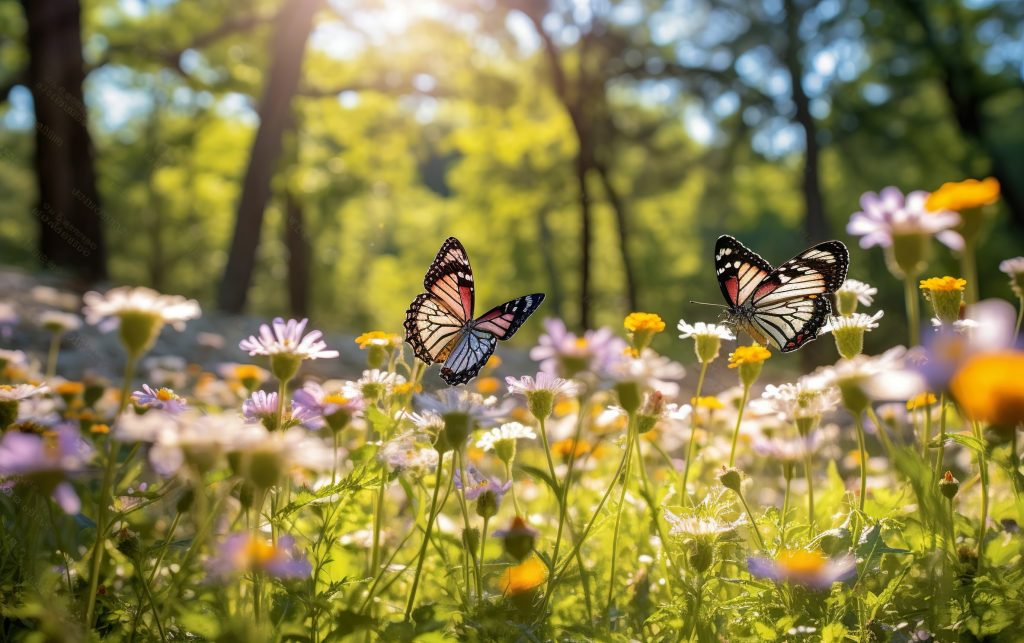Tag: conservation
Ecology in our cities: Why urban biodiversity matters

In the UK, conservation charity Plantlife runs an annual campaign to raise awareness of the detrimental effects of excessive lawnmowing. A perfectly manicured lawn may have once been something to be proud of, but keeping grasses cut down is deleterious to the environment. This year, the ‘No Mow May’ campaign reached even more people than in previous years, and helped […]
Read More… from Ecology in our cities: Why urban biodiversity matters
Accounting for biogeographical ignorance within biodiversity modelling

Biodiversity data can be analysed to predict species distribution at various scales of time and space. However, survey completeness and temporal decay in data quality introduce uncertainty into biodiversity models. Researchers Joaquín Hortal, Juliana Stropp (National Museum of Natural Sciences, Spain), Richard Ladle (University of Porto, Portugal), and Geiziane Tessarolo (State University of Goiás, Brazil), among others, are constructing the […]
Read More… from Accounting for biogeographical ignorance within biodiversity modelling
Tuna on the move: How climate change impacts Pacific Island economies

Climate change affects the spatial distribution of commercially important tuna species in the tropical Pacific Ocean. Predicted shifts of tuna outside the jurisdictions of Pacific Island countries and territories could have a significant impact on the revenue they receive from tuna fishing, threatening their economic stability during climate change. Dr Johann Bell from Conservation International and the University of Wollongong, […]
Read More… from Tuna on the move: How climate change impacts Pacific Island economies
How to behave in sloth bear territory

Sloth bears are considered to be one of the most dangerous mammals in India. The number of sloth bear attacks annually rivals and may even exceed the total number of all bear attacks from the seven other extant bear species combined. Communities sharing their environment with these bears need clear-cut advice on how to behave to avoid bears and what […]
The Orangutan Project: How a successful not-for-profit organisation is working to protect Critically Endangered orangutans from extinction

The Orangutan Project was founded in 1998 by orangutan expert and conservationist Leif Cocks. Today, it takes a multifaceted approach to conservation, targeting the key threats facing the Critically Endangered orangutan population. Leif Cocks told us about the vital work of the Project, and about his own ethics which underpin the conservation work. Orangutans are facing an existential threat. As vast tracts […]
Preserving biodiverse river corridors for sustainable city development

As the global population continues to soar and the number of inhabitants in cities climbs ever higher, sustainable development strategies are urgently needed to prevent catastrophic ecological decline in our urban environments. Understanding anthropogenic threats is the first step towards conservation: Jochen Hack, Professor of Ecological Engineering at the University of Darmstadt in Germany and leader of the interdisciplinary research […]
Read More… from Preserving biodiverse river corridors for sustainable city development
That’s disgusting! How primates decide what not to eat

All animals need to find a way to avoid contact with pathogens when they are eating. For primates, Dr Cécile Sarabian, based at Kyoto University Primate Research Institute in Japan, shows that many species either avoid food contaminated with faeces or thoroughly handle the food, trying to clean it before eating. For the researcher, this is proof that this behaviour […]
Read More… from That’s disgusting! How primates decide what not to eat
Scalloped hammerhead sharks have more complex migratory routes than expected

Using a new method to study migratory routes of scalloped hammerhead sharks, Dr Claire Coiraton and Dr Felipe Amezcua, based at the National Autonomous University of Mexico, identified a more complex picture than previously thought. It turns out that not all sharks follow the same pattern of movements, with some preferring to stay in coastal areas while others opt for […]
Read More… from Scalloped hammerhead sharks have more complex migratory routes than expected
Reconciling forest and tree conservation with food security

Forests and trees are a critical resource for human communities. However, conservation efforts to prevent biodiversity loss increasingly conflict with the rights and access of communities using forests for their livelihoods and crucially to meet their nutritional needs. Prof Terry Sunderland of the University of British Columbia, Vancouver, has long pointed to the importance of forests in contributing to food […]
Read More… from Reconciling forest and tree conservation with food security
Action research creates a shared future for elephants and humans

In 2009 a crisis faced the elephant and human populations of central Mali, when a vital fresh water source dried up. Reduced rainfall and increased human activity, including vast herds of domestic cattle, contributed to this critical problem. Dr Susan Canney of the University of Oxford and Director of the Mali Elephant Project, decided a new and prompt approach was […]
Read More… from Action research creates a shared future for elephants and humans